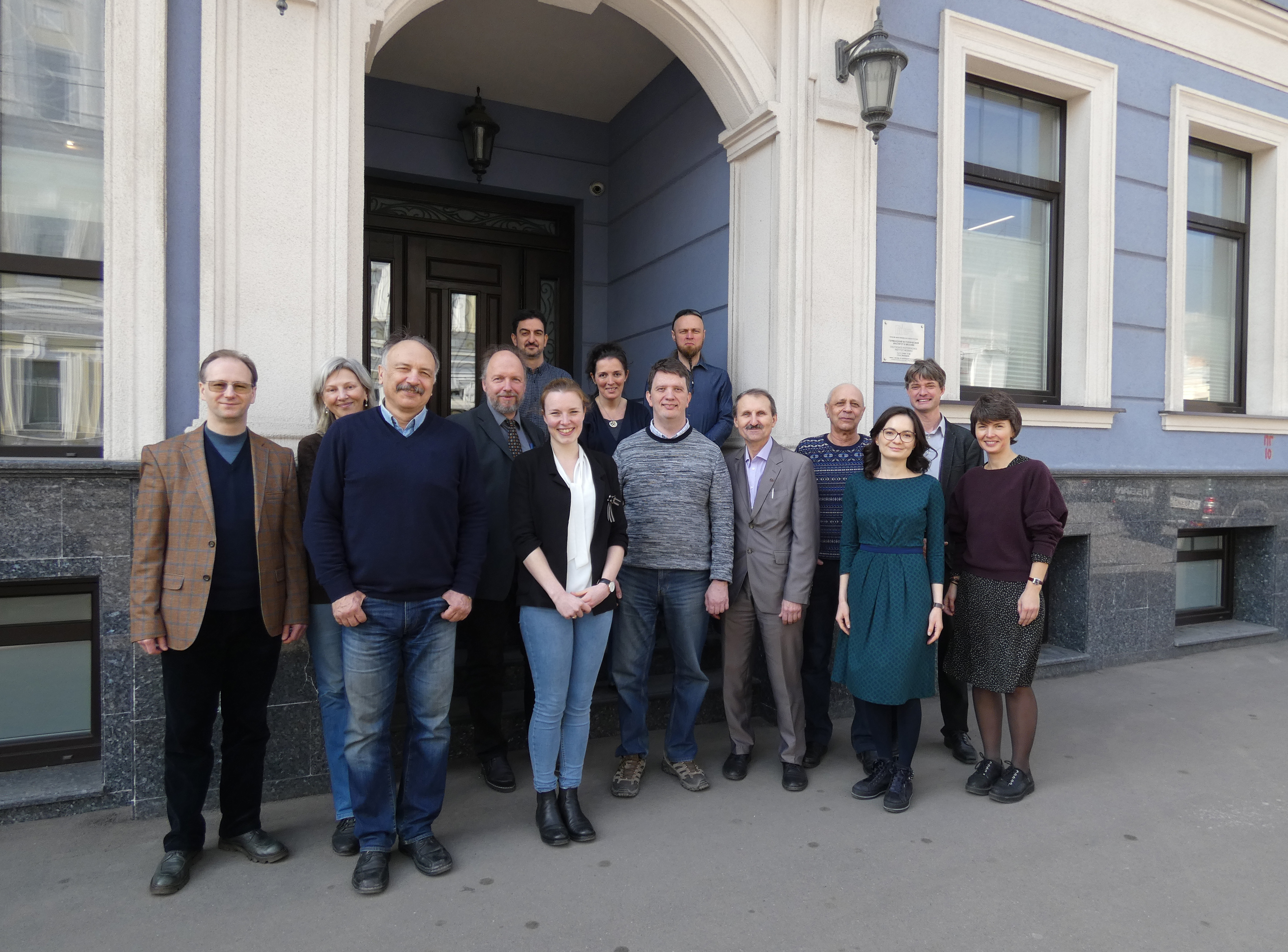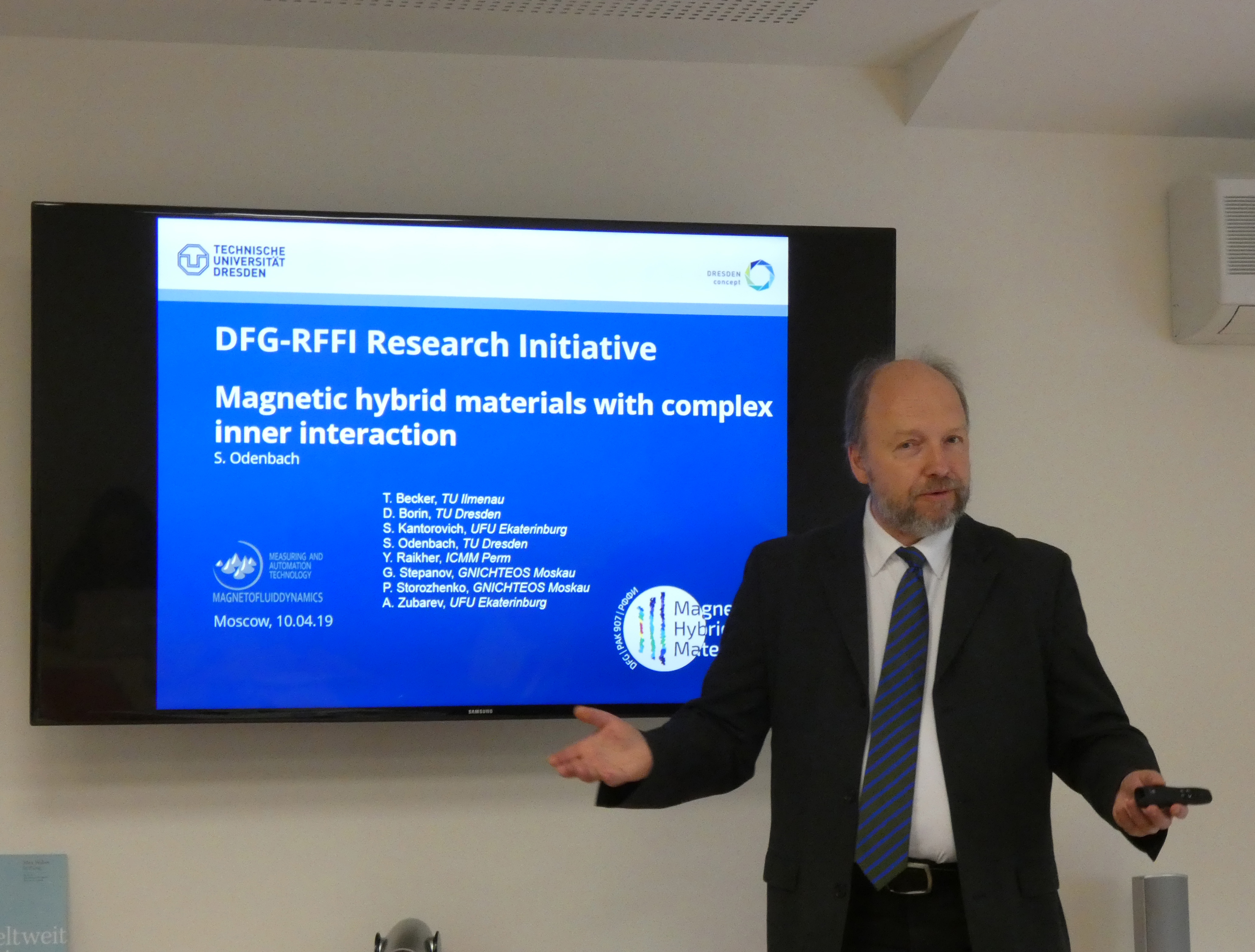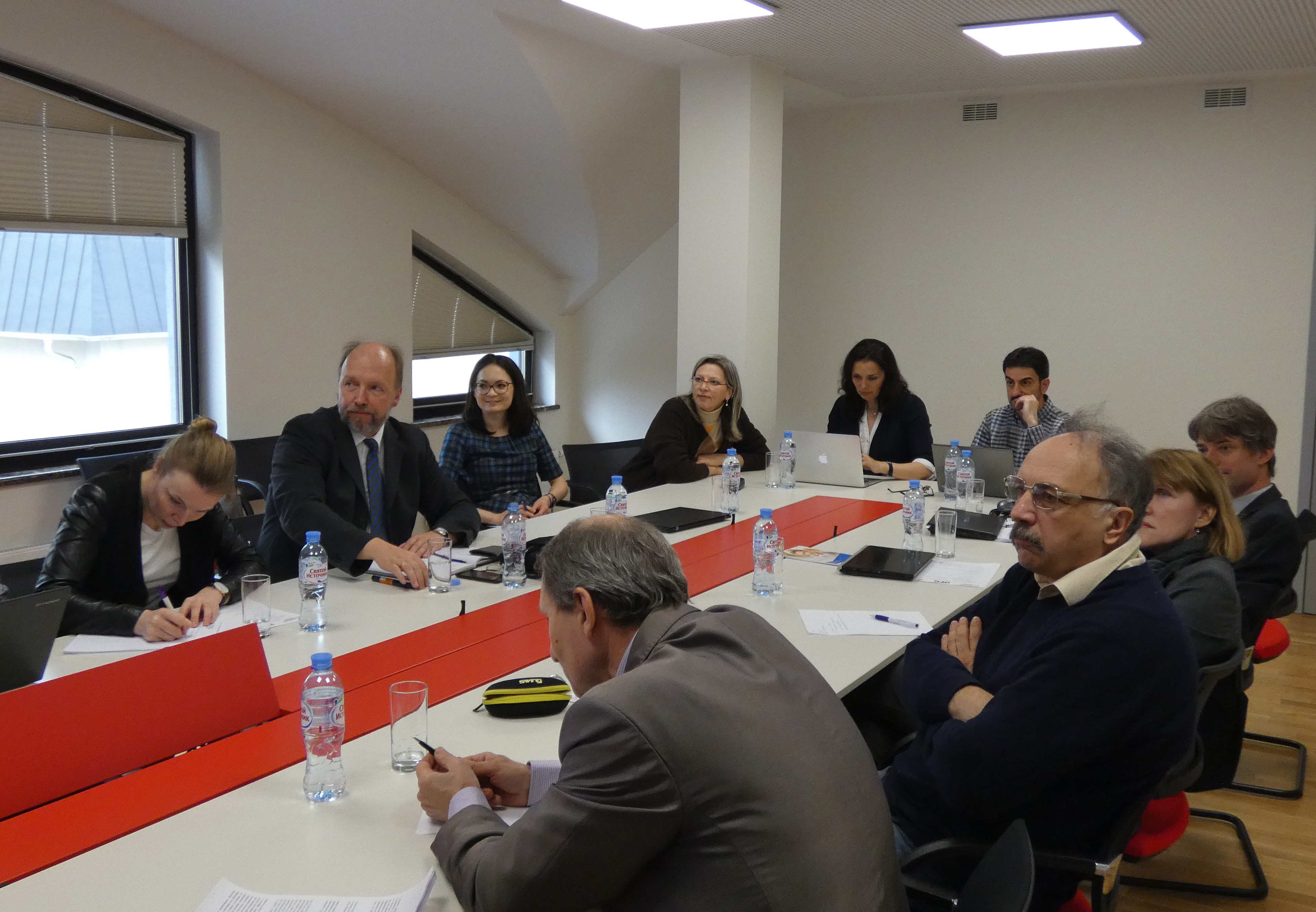DFG Moscow Office supports German-Russian Workshop on Magnetic Hybrid Materials
(06.05.19) Researchers from Dresden, Ilmenau, Moscow, Yekaterinburg and Perm discussed specialist aspects and future prospects of German-Russian cooperation in the field of magnetic hybrid materials.
A multi-day workshop by TU Dresden entitled Cooperation on Advanced Problems in Magnetic Hybrid Materials, headed by Prof. Stefan Odenbach, Professor of Magnetofluiddynamics, Measurement and Automation Technology at the Technical University of Dresden, took place from 10 to 12 April with the support of the DFG Office in Moscow. In addition to around 15 researchers, representatives of both the DFG and Russian partner organisation RFBR participated in the workshop held on the premises of the German Historical Institute in Moscow.
Attendees at the workshop on magnetic hybrid materials in April 2019, Moscow
© DFG
The workshop is an integral part of a DFG Priority Programme, which has been running since 2014 and is headed by Prof. Odenbach. The international team addresses a variety of topics, ranging from physical principles and the study of chemical processes to the modelling of systems. The aim is to develop tailor-made materials with both active and passive magnetorheological properties. In terms of future outlook, the research is set to facilitate a number of possible applications, such as using the materials in the context of biomedicine and sensory, electrotechnical applications. Besides diversity in terms of specialisms, the project has a strong international focus, as Michael Lentze (DFG Programme Director) emphasised at the opening of the event. In closely coordinated work packages, the individual projects involve collaboration with partners from Germany and Russia. Results have already been presented at a number of different conferences in Russia and Germany. The DFG is supporting the projects with more than €1 million in funding, whilst Russian projects are being financed by the RFBR.
Attendees at the workshop on magnetic hybrid materials in April 2019, Moscow
© DFG
The event is also a contribution towards the current German-Russian Year of University Cooperation and Research 2018–2020, which is expected to give bilateral university cooperation increased visibility. The RFBR and the DFG are therefore taking the opportunity to gauge the prospects of scientific cooperation with the researchers.


